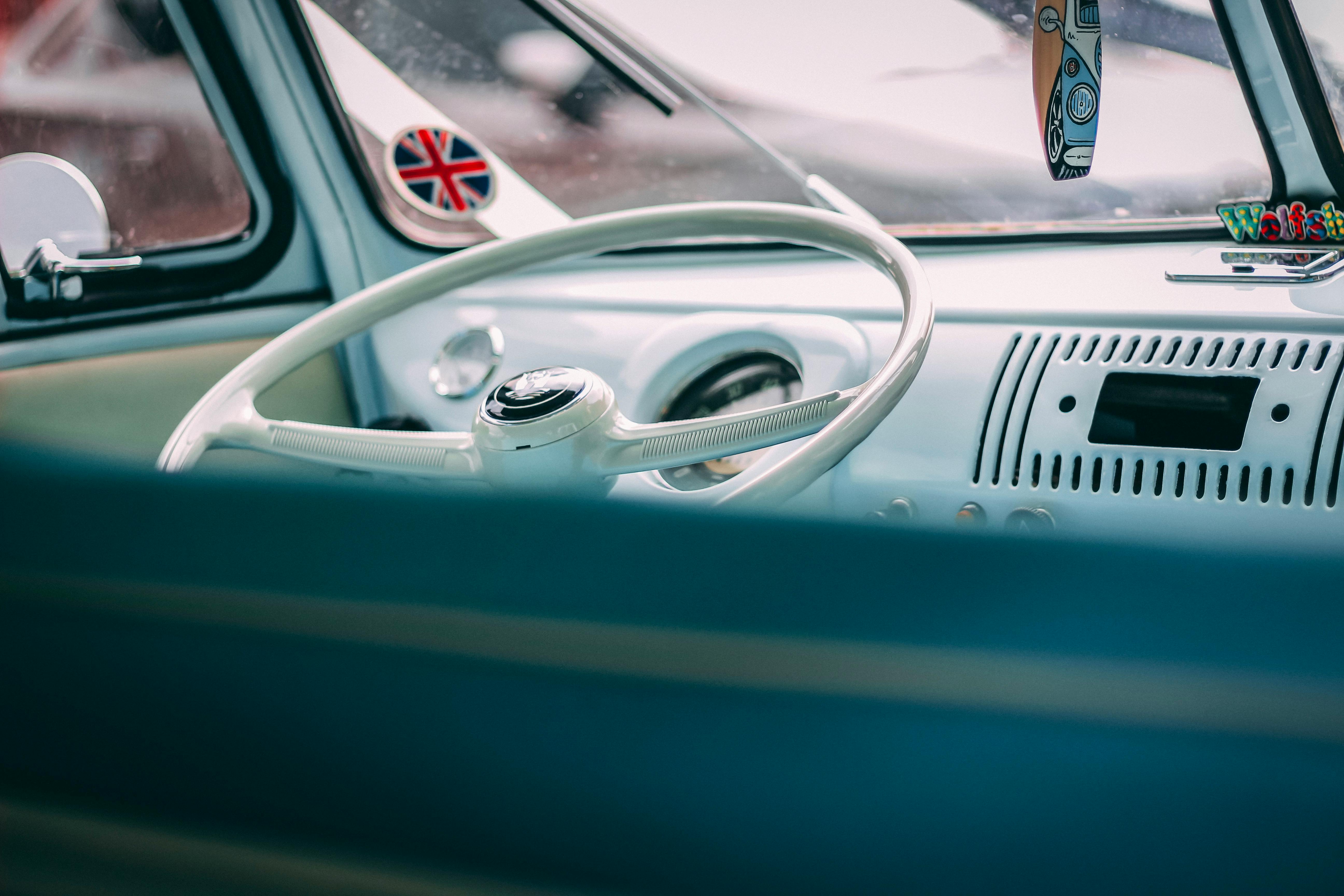Carroll Shelby built some of America’s greatest muscle cars, but he was also a legend in American performance car racing. His racing career began in 1952. He started out in endurance racing but quickly moved into road racing. He won his first race driving an MG. He beat not only other MGs in the race, but also the most powerful Jaguars. In 1954, Shelby was racing in Europe driving Aston Martins for the John Wyers team. In November 1954, Shelby flipped his race car 4 times in a Pan American race in Mexico and suffered cuts, breaks, and a mangled elbow. He continued to race in 1955 wearing a special fiberglass cast and gluing his hands to the wheel. Despite these difficulties, Shelby kept winning. In 1957, Carroll Shelby was named Racing Driver of the Year by Sports Illustrated magazine. In 1960 Shelby moved to California and opened a Goodyear tire dealership and that same year he competed in his last race.
Carroll Shelby was retired from racing, but would now begin a chapter in his life that would have a profound impact on American sports cars. He opened a performance driving school in 1961 and in March 1962 he opened Shelby America in Venice California. His first car, the Shelby Cobra, was a combination of a frame built by AC in England and a small-block V-8 built by Ford Motor Company. The Shelby Cobra was the fastest production because it was built at the time. Shelby America went through some initial challenges, but eventually starts selling quite a few Cobras. The car is a proven winner in the racing world and in 1965 Ford asks Shelby to develop a high performance Mustang for street and racing purposes. Ford was eager to compete with the Chevrolet Corvette on both the street and track and they felt that Carroll Shelby could give them the edge they needed.
1964-1965
In September 1964, Ford Motor Company and Shelby America form a partnership to build high-performance Mustangs. Ford begins sending Shelby disassembled Mustangs and allows him to do whatever he wants with them. The first 1965 Shelby GT 350 race and production cars were built in late 1964. They are only offered in white and Shelby added a blue stripe on the side with the words GT 350. Under the hood, Shelby fitted an aluminum intake, which pushed the horsepower from 271 to 306; they also added a Borg-Warner T-10 four-speed transmission. The suspension received a larger front sway bar, Koni shocks and drawbars, as well as a 1″ sway bar. On the more cosmetic side, Mustangs were equipped with fiberglass hoods with functional air intakes. The seat Rear was removed to make way for spare seat.Competition tires and seat belts were fitted.These models came on the market in January 1965. They did not sell quickly but were bought by enthusiasts, which was the target market.
In March 1965, Shelby America moved Mustang production to Los Angeles International Airport. They began work on what would become the 1966 model. The 1966 GT350 would be offered in more than one color. It was available in black, red, green, and blue. Shelby America also offered a supercharged version of the GT350, as well as a convertible model. In November 1965, Shelby struck a deal with Hertz to build the Shelby GT 350H. He originally received an order for 200, which he later increased to 1,000.
1966-1967
The 1967 model year of the Shelby Mustangs offered a new look. Ford was building a tougher looking car and Shelby made it even more muscular by adding two side scoops and a spoiler. Many of the GT 350’s body components were made of fiberglass. The biggest addition to the Shelby line was the GT 500. The Shelby 500 was the big-block version of the Shelby Mustang. It had a massive 428cu in. police interceptor engine, which produced 355 horsepower. You can buy the car with either a C-6 automatic transmission or a Ford Toploader 4-speed manual. It came with power steering and brakes. The Hertz model was not produced this year and neither was the supercharged version.
1968-1970
Not many changes were made for the 1968 model year, except for some fairly extensive name changes. This year’s Shelby Mustangs were called the Shelby Cobra and the GT500 was released as the GT500KR for King of the Road. Most of the changes were cosmetic, and Shelby produced a large number of convertibles for this model year.
In 1969, Ford completely redesigned the Mustang line. Shelby made some dramatic cosmetic changes to the car, stretching out the entire front end of the car using fiberglass and putting 5 scoops just on the hood. The engine was basically the same but was also offered as a 351. 1969 would be the last year for the Shelby Mustang. As sales fell sharply, the partnership between Ford and Shelby America ended. The remaining 1969 models would be upgraded to 1970 specifications and sold. In December 1969 Shelby America closed its doors. It would be the end of an era for American muscle cars. Carroll Shelby would continue to work for Dodge/Chrysler and would be instrumental in the Dodge Viper project.
In 2003, Ford Motor Company and Shelby Automotive announced that they would build cars together again. The Shelby Cobra was introduced in 2004 and the Shelby Mustang GT 500 was introduced a year later in 2005. In 2006, Motor Trend magazine named Carroll Shelby one of the 50 Most Important People in the Automotive Industry, and that same year , Hertz and Ford agree to resurrect. the Hertz Mustang for the car rental company. The Shelby Mustang convertible was introduced in 2007. Shelby Mustangs are still in production today.



